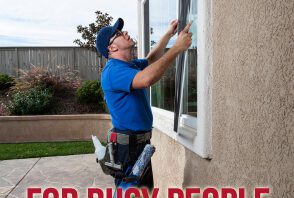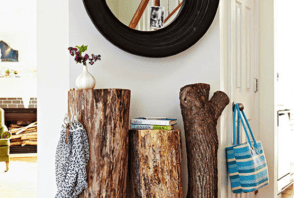Window screens are an absolute necessity here in Sydney; we use them year round to keep the critters out and our homes cool. And, though most of us…

Can aluminium windows be repaired?
How to tell whether you should carry out window repairs (on aluminium, timber or uPVC), replace components, or upgrade to new.
Windows are one of the most important parts of your home to keep in good working order as they play a number of different roles – They allow light and fresh air into your home, while simultaneously keeping out dust, wind, rain, and burglars. While high-quality, well-constructed aluminium windows will give you years of hassle-free use and enjoyment, over time, components of your windows may start to become damaged and need repair.
In this blog post, we’ve gone through a number of main window components that occasionally require repairing, and how to tell whether you should get a window replaced rather than repaired. We’ve also taken a look at a few other common types of windows, such as timber, steel and UPVC, and some of the things to keep in mind with these different types of materials.
Jambs, frames and casements
Window jambs and casements often bear the majority of the brunt when it comes to wear and tear, and they’re liable to be knocked, scraped, and have furniture pushed up against them if they extend all the way to the ground. Cosmetic damage (such as scratches) to aluminium windows can be filled and re-painted, but only by a professional. If your windows are anodised, they’ll be easier to scratch, as the colour is actually the colour of the aluminium itself. However, if your windows are powder coated, the extra layer of colour makes them much harder to scratch.
What about Timber Windows?
In timber windows, frames are prone to rotting and warping over time, unlike with aluminium windows, which hold their shape. The durability of timber window depends heavily on the direction they face, and the type of wood they’re constructed out of. Once rot has set into a timber frame, it’s impossible to stop, and windows will need to be replaced. To help minimise any deterioration, timber windows need to be maintained and looked after, which involves cleaning them often to remove dust and mold, and re-staining or repainting them regularly to keep them sealed and to help stop moisture seeping into the timber itself. Otherwise, the cost to replace timber windows tends to be quite high. Of course, the benefit of wood is that chips, scratches and other aesthetic damage can be repaired with a simple DIY job, or by a professional painter if you prefer.
Or UPVC?
If your windows are made of UPVC, repairs to cosmetic damage are more difficult than with timber or aluminium, as the plastic mould is hard to fix. Filler can be used to cover chips and scratches, but it’s very difficult to achieve the original look, and in most cases, a replacement is the best option. UPVC also has stabilisation issues, and the material doesn’t react well to UV rays and temperature fluctuations – two things we get quite a lot of here in Sydney. Because of this, colour options are fairly limited, as only a few colours can be stabilised adequately to ensure the material is fit for use in windows and doors. UPVC also cannot naturally expand and contract with temperature fluctuations like timber can, and so there is a risk of the plastic cracking over time. Another risk with UPVC windows is condensation, which can get inside and corrode the internal metal skeleton, which can then start to rust. If this occurs, or if the UPVC begins to crack or warp due to exposure to temperature fluctuations and overexposure to UV radiation, it’s likely the whole window will have to be replaced.
Fixed glass panels
The glass panels are the most common window component that people enquire about replacing or repairing. There are those obvious occasions when you know whether or not glass needs to replaced (such as if a rogue cricket ball finds its way through your living room window one day). However, another thing to consider is the age of your windows, as this will determine how well the glass inside them is actually serving its purpose. Any window older than 15yrs old most likely has very low quality glass in it, so you may want to consider replacing the glass panels in order to improve the overall energy efficiency, safety and security of your windows. However, keep in mind that if the rest of your window is damaged, warped, or deteriorating, simply replacing the glass is unlikely to give any major benefit if the frame, seals, handles or rails are still defective. When it comes to time to replace your glass, some people try to do it themselves – this is fairly straightforward, but it can go wrong, so it’s safest and easiest to hire a professional glazier.
Rails and rollers
Rollers and rails in sliding windows tend to become damaged over time, which can make them difficult to open and close. This can become dangerous, as having to use a lot of force to operate a window can cause other components, such as handles and locks, to become damaged (not to mention the risk of the window coming off the rail completely if too much force is used). To help stop this from happening, tracks must be cleared regularly, as dust and debris can build up which can impede the movement of the rollers. If your window is becoming harder and harder to maneuver, it’s best to speak to a professional and ask them to assess whether the damage is in an easily replaceable component of the rails, or whether replacement might be necessary.
Spring balances
Spring balances (sometimes called spiral balances) often break in double hung windows, and can be surprisingly expensive to replace. Broken balances can be extremely dangerous, as windows can close unexpectedly on fingers, or get stuck in the open or closed position, which is both a weather concern and a security risk. It’s best to contact a professional and obtain a quote for replacing the balances as soon as you start to experience any problems with them.
Handles and locks
Over time, with repeated use, handles and locks can become damaged, worn, or loose, which can become a security risk. Handles and winders on styles such as awning windows and louvre windows can also break or become difficult to operate, and if your windows are very old, the parts to replace them may no longer be manufactured. In most cases, however, replacing handles and locks on all types of newer windows is fairly straightforward and inexpensive, and it’s unlikely to warrant an entire window replacement.
The risks of not repairing damage or replacing your windows
Damaged windows pose more of a risk than just affecting the overall look of your home. Things like unsealed window edges caused by warped frames or worn down edges can start to affect the level of comfort in your home. Draughts and damp can start to seep in, not to mention the cold air in winter, and hot air in summer. If seals aren’t closing properly, the costs of heating and cooling your home can rise, due to warm or cool air escaping out the edges. Sealant or replacing window seals altogether can help in some situations, but this is only a temporary, short-term solution if there is a structural problem or damage to other components. Windows not sealing properly also poses a security risk, as they may be weakened and easier to pry open.
Why would you repair instead of replacing?
There are a few instances in which you might want to go to all lengths possible to repair your windows rather than replace them. One example is if you live in an older house with colonial or historic-style windows that you want to keep the same for the purposes of keeping the aesthetic of your home in original condition. In any case, it’s best to speak to a professional to see what can and can’t be achieved through window repairs, and how much it’s likely to cost you.
Got more questions on repairing vs replacing aluminium windows? Let us know in the comments section below, or get in touch with us on 1300 44 64 44.
Categories
- Aluminium Doors
- Aluminium Windows
- Bi-Fold Doors
- Causes We Support
- Contracts and Business
- Double Hung Windows
- Energy Efficiency
- Events / Trade Shows
- FAQ Series
- Hinged Doors
- Home Decor Tips
- Home Renovation
- Home Security
- Infographics
- Louvre Windows
- Other
- Outdoors
- Sliding Doors
- Sliding Windows
- Stacker Doors
- Trends
- Uncategorized
- WERS Rating Scheme








